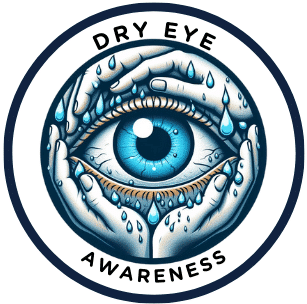
Cold Weather and Dry Eyes: Understanding, Preventing, and Treating
As the temperature drops and the winter season approaches, many people experience discomfort and irritation in their eyes. Cold weather and dry eyes is a common phenomenon during this time. In this article, we will explore the definitions, mechanisms, and solutions for this issue.
Definitions: What Are Dry Eyes?
Dry eyes, or “dry eye syndrome,” is a condition where the eyes do not produce enough or low-quality tears, leading to discomfort and visual disturbances. When this condition is exacerbated by cold weather, it can become particularly troublesome.
Mechanisms: Why Does Cold Weather Affect Your Eyes?
- Low Humidity: Cold weather often coincides with low humidity levels. The dry air can accelerate the evaporation of the tear film, leading to dry eyes.
- Wind Exposure: Cold winds can exacerbate the problem. Windy conditions cause tears to evaporate more quickly and may also carry allergens that can irritate the eyes.
- Indoor Heating: Heated indoor spaces can be equally harsh on your eyes. Artificial heating systems reduce indoor humidity levels, further contributing to dryness.
Solutions: How to Alleviate Cold Weather-Induced Dry Eyes
- Use Humidifiers: Increasing indoor humidity levels with a humidifier can help maintain a more comfortable environment for your eyes.
- Wear Protective Eyewear: When stepping outside in cold and windy conditions, consider wearing wraparound sunglasses or goggles to shield your eyes from the wind and reduce tear evaporation.
- Blink Frequently: Being mindful of blinking can help spread a healthy layer of tears across the eye surface. Remind yourself to blink more often, especially when working on digital devices.
- Artificial Tears: Over-the-counter artificial tear drops can provide relief by supplementing your natural tears. Consult with an eye care professional for recommendations.
- Stay Hydrated: Adequate hydration is essential for maintaining the moisture balance in your body, including your eyes. Ensure you’re drinking enough water.
FAQ:
Q1: Can cold weather cause permanent damage to the eyes?
A1: Cold weather itself doesn’t typically cause permanent eye damage. However, prolonged exposure to cold and dry conditions can exacerbate dry eye symptoms, leading to discomfort and potential long-term issues.
Q2: Are there any natural remedies for cold weather-induced dry eyes?
A2: Yes, you can try placing bowls of water near heating sources to increase indoor humidity, consuming foods rich in omega-3 fatty acids (like fish), and applying warm compresses to your closed eyes to relieve discomfort.
Q3: When should I seek professional help for my dry eyes?
A3: If your dry eye symptoms persist, worsen, or significantly affect your daily life, it’s advisable to consult an eye care professional. They can provide a thorough evaluation and recommend appropriate treatments or interventions.
In conclusion, cold weather can exacerbate dry eye symptoms, but with proper understanding and proactive measures, you can protect your eyes and maintain eye comfort during winter. Don’t hesitate to contact an eye care professional if you experience persistent dry eye issues.
